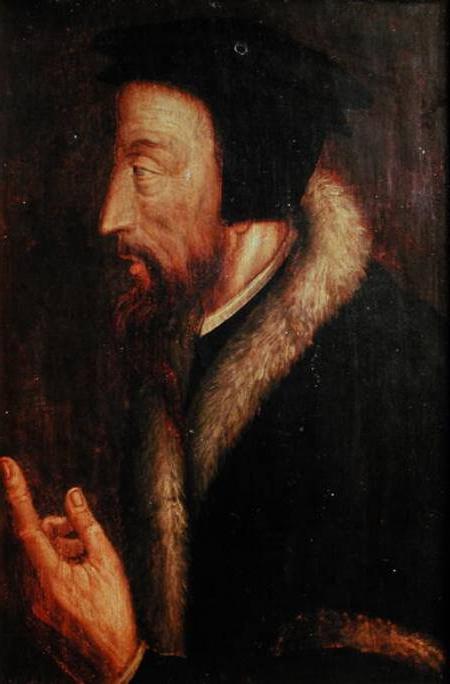prepácio aos salmos; 1557
João Calvino frases e citações
João Calvino: Frases em inglês
Page 26.
Golden Booklet of the True Christian Life (1551)
Book 3, Chapter 14, p. 643
Institutes of the Christian Religion (1536; 1559)
Prefatory Address, p. 22
Institutes of the Christian Religion (1536; 1559)
Page 90.
Golden Booklet of the True Christian Life (1551)
Commentary on the Book of Genesis. Chapter I http://www.iclnet.org/pub/resources/text/ipb-e/epl-01/cvgn1-03.txt.
Genesis (1554)
Page 35.
Golden Booklet of the True Christian Life (1551)
Calvini Opera, Braunshweig-Berlin, 1863-1900, Volume 45, 348, (1877-78)
John Calvin, Antidote to the Canons of the Council of Trent, Canon 23. (1547)
Works (1844) edited by the Calvin translation society, as quoted in Reformed Spirituality: An Introduction for Believers (1991) by Howard L. Rice, p. 59.
In John Allen, ed., Institutes of the Christian Religion. Ioannis Calvini Institutio Christianae religionis http://books.google.com/books?vid=OCLC06656346&id=ONsOAAAAIAAJ&pg=PA169&lpg=PA169&dq=calvin+%22devoted+from+the+womb%22&as_brr=1#PRA1-PA169,M1 (Philadelphia: Presbyterian Board of Publication, 1841), p.169.
Book I Ch. 18 "The Instrumentality of the Wicked employed by God, while He continues free from every taint" as translated by Henry Beveridge.
Institutes of the Christian Religion (1536; 1559)
Fonte: A Treatise of Relics (1549), p. 13
Page 74.
Golden Booklet of the True Christian Life (1551)
Page 50.
Golden Booklet of the True Christian Life (1551)
Commentary on John 19:26
St John
John Calvin, https://books.google.com/books?isbn=1556352468 Epistle CCC to the French church in London, 27th September 1552; translated by Jules Bonnet, p.362
Page 48.
Golden Booklet of the True Christian Life (1551)
Page 72.
Golden Booklet of the True Christian Life (1551)
Commentary on Genesis 1. http://www.ccel.org/ccel/calvin/calcom01.vii.i.html, (1554)
Genesis (1554)
Commentary on Luke 1:45 http://www.biblestudyguide.org/comment/calvin/comm_vol31/htm/ix.viii.htm.
Harmony of Matthew, Mark, Luke
Commentary on 1 Corinthians, 12:12.
Commentary on the Epistles of Paul the Apostle to the Corinthians, 1848, Rev. William Pringle, tr., Edinburgh, Volume 1, p. 405. http://books.google.com/books?id=tQsOAQAAMAAJ&pg=PA405&dq=%22calls+the+church+christ%22&hl=en&ei=w3_pTZW2CYLx0gGl2L2WAQ&sa=X&oi=book_result&ct=result&resnum=3&ved=0CDQQ6AEwAjgU#v=onepage&q=%22calls%20the%20church%20christ%22&f=false
Epistles to the Corinthians
Johnstone and Hunter edition (1854), p. 248
A Treatise of Relics (1543)
Institutes 1.11.9 as quoted in War Against the Idols: The Reformation of Worship from Erasmus to Calvin by Carlos, M. N. Eire p.217
Page 44.
Golden Booklet of the True Christian Life (1551)
Page 69.
Golden Booklet of the True Christian Life (1551)
John Calvin. "Commentary on Luke 1:43". Harmony of Matthew, Mark, and Luke. 1. Retrieved 2009-01-07.
Harmony of Matthew, Mark, Luke
Page 22.
Golden Booklet of the True Christian Life (1551)
Excuse, CR 6.595. as quoted in ibid, p.220
Letter to Philip Melanchthon, November 28, 1552.
